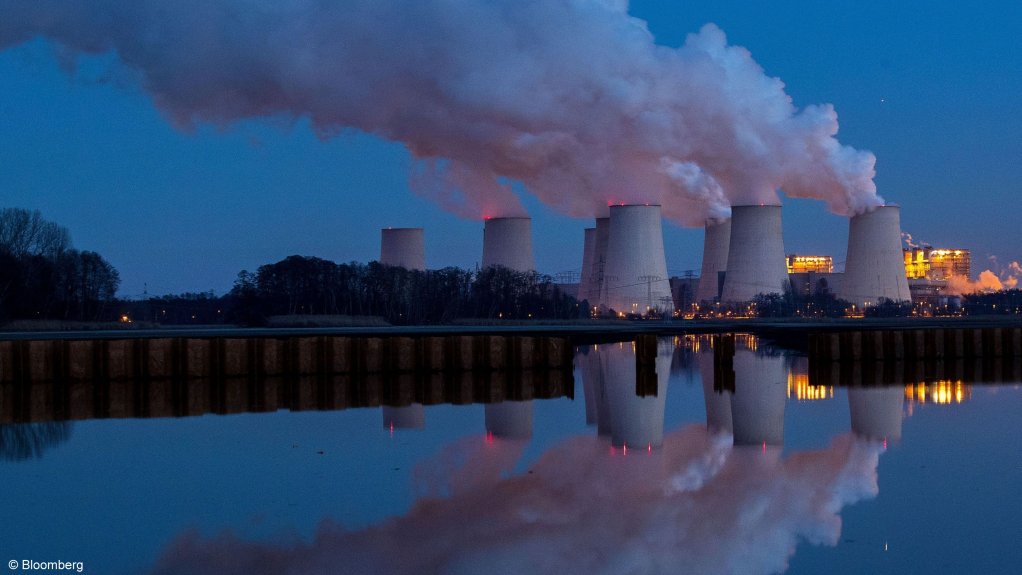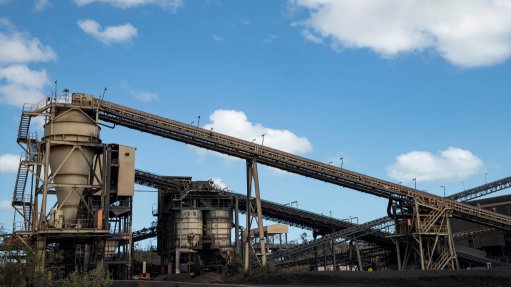Fossil fuel firms not doing enough on emissions, funds say
None of Europe’s largest oil, gas and coal companies are on track to limit global warming to within 2 °C, according to a report by money managers overseeing more than $22-trillion.
Energy and mining companies have been under increasing pressure, from both environmental groups and their own investors, to demonstrate how their business models align with the Paris climate agreement and to show they’re taking action to curb their emissions.
Only seven out of 59 companies studied -- Royal Dutch Shell, Repsol, Total, Eni, Glencore, Anglo American and Equinor -- have set emissions reduction targets in line with pledges made in the Paris Agreement, according to a report by the Transition Pathway Initiative. The TPI is a global program based at the London School of Economics, which assesses climate risks and companies’ preparedness for a low-carbon economy.
However, even these so-called Paris Pledges will still leave the world heading for 3.2 °C of warming, according to the United Nations Environment Programme.
Just three oil and gas companies studied -- Shell, Total and Eni -- are approaching a 2 °C pathway “but still need further measures to be assessed to align with this benchmark,” the TPI said in a statement.
“We’re seeing a direction of travel that is going toward decarbonization that is really positive,” Bill Hartnett, stewardship director at Aberdeen Standard Investments said in an interview. “However, there is a lot of devil in the detail.” The asset manager, which is a funding partner for TPI, sees the report as providing a framework to allow it to engage with fossil fuel companies so that net zero ambitions can be formalized into commitments or targets over time, Hartnett said.
“We need to look at the detail of this report, but we are pleased that the TPI recognises both the leading nature of our ambition and that we are aligned with the emissions reduction pledges of the Paris Agreement,” a Shell spokeswoman said. “We continue to engage with TPI over their methodology so that hopefully their models will in future be able to show how Shell’s ambition to be a net zero emissions energy business by 2050 is aligned with society’s move toward the 1.5 °C goal of Paris.”
London-based BP’s emissions are seen steadily declining over the next three decades. However, they’re still expected to remain above what’s needed to comply with the Paris Agreement, despite the company unveiling further details of its climate goals last month. BP said it hadn’t seen the full report and didn’t know if TPI’s analysis reflected its new strategy announced in August and September. The oil major said it believed its net-zero ambitions set it on a path consistent with the Paris goals.
BP aims to eliminate all net greenhouse gas emissions by 2050. However the company isn’t aligned with any of the Paris benchmarks because its climate target does not cover traded products, according to Valentin Jahn, research associate for TPI, part of the specialist team at the Grantham Research Institute on Climate Change at the London School of Economics. These comprised more than half of its externally sold energy in 2019, Valentin said.
Glencore declined to comment on the report. The company said in February it would cut so-called scope 3 emissions -- those generated by their consumers -- by 30% over the next 15 years. Anglo American said it was committed to responding to climate change and that it aimed to be carbon neutral across its operations by 2040.
Equinor announced this year it would eliminate emissions from its global operations by 2030 and would reduce the carbon intensity of its products by at least half by 2050. “We believe the measures demonstrate that our company is acting in line with the Paris ambitions and our plans are more ambitious than in most jurisdictions,” an Equinor spokesman said.
Repsol said it was firmly committed to becoming a “net-zero emissions company” and that it would “continue to engage with TPI to demonstrate our progress in this respect.”
“We are pleased to see that TPI, in its most recent report, has given Eni a top evaluation,” an Eni spokesperson said. “In the pathway to keep the temperature increase to 2 degrees or below, we consider that the best way for companies to align with such goal is to set absolute emissions targets.”
Total said it supports the goals of the Paris accord and that its ambition is to be carbon-neutral by 2050. The French energy company says it has already reduced its average carbon-intensity of the energy products it sells by 6% since 2015.
TRANSATLANTIC DIVIDE
The research also highlights the growing divide between European and North American companies’ approaches toward mitigating climate change. Neither of the two US oil giants, Exxon Mobil and Chevron, have overarching emissions goals.
On the contrary, Exxon Mobil has been planning to increase annual carbon-dioxide emissions by as much as the output of the entire nation of Greece, an analysis of internal documents reviewed by Bloomberg shows.
“There has been some movement, with seven European companies now aligned with the Paris pledges, and Shell, Total and Eni getting close to meeting the 2 °C benchmark,” TPI co-chair Adam Matthews said. “But US fossil fuel giants have yet to take meaningful action to reduce their emissions and the gap with their European peers is stark.”
UTILITIES PROGRESS
Utilities are making better progress on curbing emissions than oil, gas and coal producers. According to the TPI, 39 of 66 firms analyzed are already aligned with the Paris pledges, while a third are on track to keep global warming below 2 degrees Celsius by 2050, the study showed.
“The electricity sector is heavily regulated with regards to its emissions in some regions such as the EU,” said Professor Simon Dietz, one of the authors of the report. “More broadly, the technologies needed for decarbonizing electricity production are already there and often competitive on cost with fossil fuels, so the core business model is not under threat.”
Comments
Press Office
Announcements
What's On
Subscribe to improve your user experience...
Option 1 (equivalent of R125 a month):
Receive a weekly copy of Creamer Media's Engineering News & Mining Weekly magazine
(print copy for those in South Africa and e-magazine for those outside of South Africa)
Receive daily email newsletters
Access to full search results
Access archive of magazine back copies
Access to Projects in Progress
Access to ONE Research Report of your choice in PDF format
Option 2 (equivalent of R375 a month):
All benefits from Option 1
PLUS
Access to Creamer Media's Research Channel Africa for ALL Research Reports, in PDF format, on various industrial and mining sectors
including Electricity; Water; Energy Transition; Hydrogen; Roads, Rail and Ports; Coal; Gold; Platinum; Battery Metals; etc.
Already a subscriber?
Forgotten your password?
Receive weekly copy of Creamer Media's Engineering News & Mining Weekly magazine (print copy for those in South Africa and e-magazine for those outside of South Africa)
➕
Recieve daily email newsletters
➕
Access to full search results
➕
Access archive of magazine back copies
➕
Access to Projects in Progress
➕
Access to ONE Research Report of your choice in PDF format
RESEARCH CHANNEL AFRICA
R4500 (equivalent of R375 a month)
SUBSCRIBEAll benefits from Option 1
➕
Access to Creamer Media's Research Channel Africa for ALL Research Reports on various industrial and mining sectors, in PDF format, including on:
Electricity
➕
Water
➕
Energy Transition
➕
Hydrogen
➕
Roads, Rail and Ports
➕
Coal
➕
Gold
➕
Platinum
➕
Battery Metals
➕
etc.
Receive all benefits from Option 1 or Option 2 delivered to numerous people at your company
➕
Multiple User names and Passwords for simultaneous log-ins
➕
Intranet integration access to all in your organisation





















